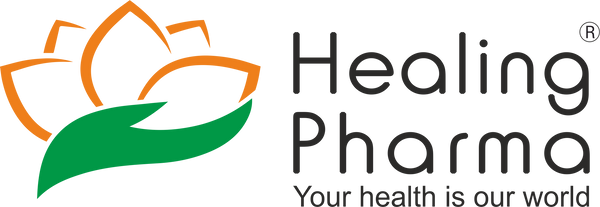Psoriasis is considered the chronic autoimmune inflammatory condition of skin. The skin tends to become white and silvery-scaly, and sometimes reddish too. According to the experts, psoriasis not only impacts the skin but also affects the individual mentally and emotionally. This World Psoriasis Day, let's dig deeper into the condition to understand the myths and facts associated with this condition.
If you’ve ever thought this skin disease was contagious, then you’re completely wrong. There are more such myths that we will be breaking down for you! People with psoriasis suffer most of their lives from anxiety, isolation, and depression. Hence, it is essential to know the right facts associated with psoriasis so that together we can make this earth a happy place for them to live.
Myths on Psoriasis
Myth #1: Psoriasis is contagious
Many people mistakenly believe that psoriasis can be spread through physical contact. In reality, psoriasis is a non-contagious autoimmune disorder. It occurs when the body’s immune system accelerates the regeneration of skin cells at an unusually high rate. You cannot contract psoriasis from touching someone who has the condition.
Myth #2: Poor hygiene leads to psoriasis
Contrary to popular belief, psoriasis is not linked to hygiene. This autoimmune disease has no connection to cleanliness and is neither caused by nor exacerbated by poor hygiene practices.
Myth #3: It is simply a skin condition
While psoriasis often appears as red, itchy patches on the skin, it can also affect other areas of the body, including nails, the mouth, and joints. Additionally, it can lead to serious medical issues, such as psoriatic arthritis, and increase the risk of heart disease and vision problems.
Myth #4: It is an adult condition
Psoriasis can have an impact on individuals of any age, including children. If both parents have the condition, there is a significant genetic risk—up to 50%—that their children may also develop it.
Myth #5: Psoriasis is same for all
Psoriasis comes in various forms. There are eight types of psoriasis, such as plaque, inverse, guttate, pustular, psoriatic arthritis, nail, scalp, and erythrodermic, each with different causes and symptoms of psoriasis.
Myth #6: There is no treatment
While there is currently no permanent cure for psoriasis, effective treatments are available. These can help alleviate symptoms and reduce the severity of psoriasis outbreaks, as well as lower the risk of developing related health conditions.
Fact on Ways to Manage Psoriasis
Managing psoriasis can be a multifaceted approach, as it involves both medical treatment and lifestyle adjustments.
Home Remedies for Psoriasis Management
- Moisturize Regularly:
Use thick, emollient creams or ointments to keep your skin super hydrated. Seek out products that have ceramides, cocoa butter, or shea butter. Moisture can be retained by applying a moisturizer immediately following a shower.
- Take Oatmeal Baths:
Colloidal oatmeal baths can help soothe itching and reduce inflammation over affected skin. To include this in your skincare routine, simply add finely ground oatmeal to warm bathwater and soak for 15-20 minutes.
- Use Aloe Vera:
Aloe vera gel can provide soothing relief from redness and irritation. Apply pure aloe vera directly to affected areas to help reduce inflammation and moisturize the skin.

- Try Epsom Salt Baths:
Adding Epsom salt to your bath can help relieve itching and reduce scaling. Soak in warm water with Epsom salt for 15-20 minutes a few times a week.
- Apply Coconut Oil:
Coconut oil is known to offer a natural moisturizing effect to the affected skin. It is further known to reduce dryness and scaling of psoriasis.
- Stay Sun-Safe:
Moderate sun exposure can improve psoriasis for some people, but it's essential to protect your skin from sunburn. Aim for short, controlled sun exposure, and always apply sunscreen to unaffected skin.
To Conclude
While managing psoriasis at home can be challenging, the above-mentioned tips can help improve the quality of life. If someone is dealing with psoriasis, they should consider seeing the doctor for a tailored diagnosis and treatment options. Moreover, dermatologists can further help to understand the triggers of psoriasis that could flare up the symptoms of psoriasis. Healing Pharma has a wide range of medicines to fuel your healthcare necessities with the best quality products. To avail Healing Pharma’s medicines, visit the nearest pharmacy with a valid prescription, or for over-the counter products, visit Healing Pharma Online. For more valuable tips on various health related issues, stay glued to the official website.


